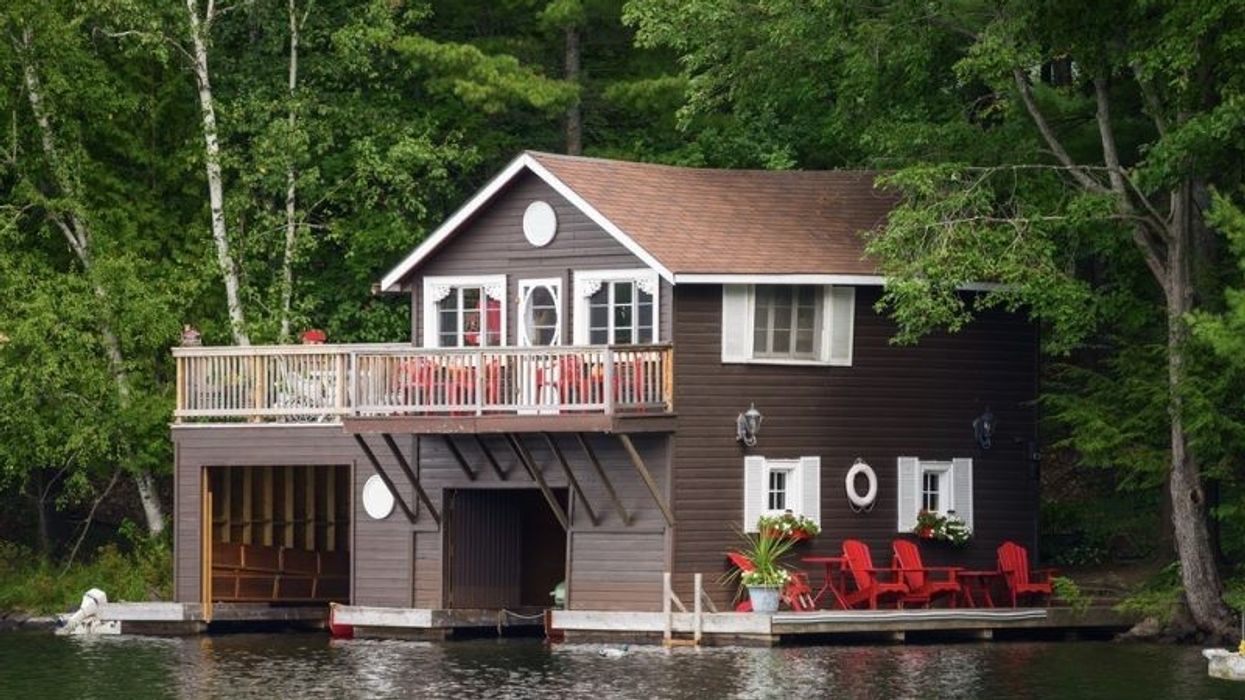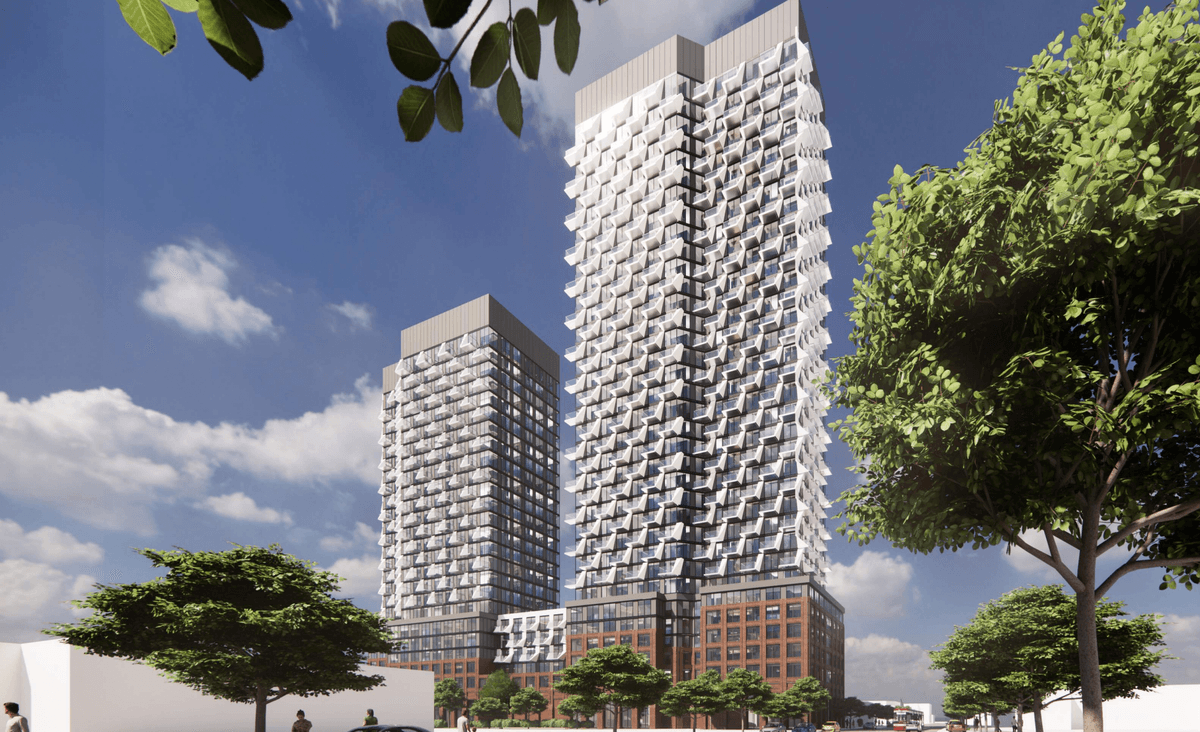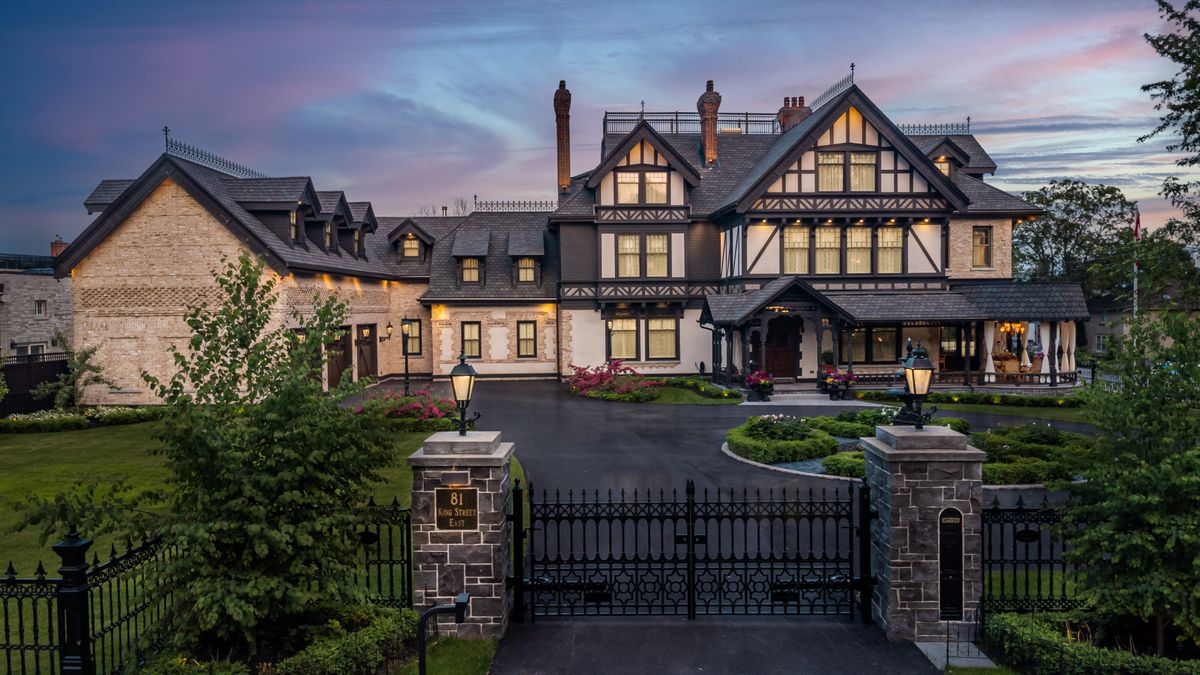As the weather warms, the need for physical distancing doesn't seem to be letting up... and as such, neither is the collective craving for cottage country.
While evermore property hunters are seeking out estates in [southern] Ontario's north, one thing anyone looking to purchase a cottage should keep top of mind is cottage insurance. Namely, why it might be difficult to get, and how cottage owners (or to-be cottage owners) can have an easier time navigating it.
"We are starting to see some insurers expressing reluctance to insure rental properties," Maryrose Coleman of both Muskoka District Rentals and Sotheby’s International tells STOREYS.
Ross Halloran, also of Sotheby's International, further explains that cottage owners -- even those not looking to rent out their properties -- may struggle to get certain aspects of their spaces secured due to relatively recent weather events. Halloran describes the spring "Ice Shove" that occurred in 2016, and the high-water flooding that occurred in 2019, both on the Big 3 Muskoka Lakes (that's Rosseau, Joseph, and Muskoka).
READ: How Another Ontario-Wide “Stay-at-Home Order” Impacts Your Cottage Country Plans
"[These instances] caused extensive damage to shoreline boathouses," he says. "Many, if not all, insurance companies stopped covering boathouses, and even the preferred high-end cottage insurance company CHUBB apparently reduced boathouse damage claims to a maximum of $50,000."
And, even beyond the particulars of rental situations and boathouses, cottages can be tricky to secure insurance on in general. Justin Thouin, CEO of LowestRates.ca explains this is because "there’s a higher likelihood of something bad happening to your cottage than your principal residence, and that’s just because you’re not there as much.”
This means that if there's an incident -- roof damage from snow, a pipe that bursts, a leak -- there will be an increase of damage and therefore, a higher cost on a fix because, statistically, nobody would be on-site to deal with the issue.
“[Cottage insurance coverage] is offered on something called a "named perils" basis -- perils are basically bad things that can happen to your cottage," Thouin says. "You need to actually opt-in to coverage for various individual risks, so things like fire, vandalism, damage caused by animals ... And these coverages are more expensive than they’d be in a principal residence because part-time occupancy increases the likelihood -- and the severity -- of certain damages."
But, before potential cottage buyers fret too much, Thouin says there's another option on the table: Secondary property insurance.
"This is in the case where you use your cottage year-round, but not as much as your principal residence. So for instance, you’re going a few days a week, or every weekend, to this cottage," he says. "To qualify for this coverage, you have to visit your property with enough frequency. Typically, at least once every 60 days."
(If this isn't possible, Thouin says you can arrange for someone to check up on your property for you, though they'll need to fill out a formal report on the property's status).
But maybe it's not in the cards for you to visit your cottage country property so frequently... or to send someone to visit on your behalf. How might one save on cottage insurance premiums then? Thouin highlights three main ways:
A Multi-Pronged Alarm System
“It’s really important to install a monitored alarm system. Not just a burglar alarm, but also fire alarm, and also maybe a temperature alarm," Thouin says.
The benefits of such a system are self-explanatory: a burgler alarm will help reduce losses to burglary, a fire alarm enables someone to be on site sooner if there's a risk of fire, and a temperature alarm can alert you of fluctuations that could cause power loss or frozen pipes. In each case, the lack of possible action that stems from living off-site is intercepted.
(What's more, Thouin notes bonus points for those living close to a fire hydrant or hall: Those near to either will likely be insured up to $1M, while those further (300 m or more from a hydrant, 13 km or more from a hall) will only be insured up to $500,000.)
A Backup Power Generator
"Get a backup power generator, because power outages are more common in cottage country," Thouin warns. "Make sure you have a backup power generator to ensure that your alarms, your freezer, your heating system, and sump pump keep working."
This addition backs up the supports mentioned above, to make sure they keep running regardless of the weather.
Winterize the Cottage
"If you winterize the cottage, you’re able to live there year-round, you're able to visit it year-round, and insurance companies will view that as a lower risk," Thouin explains.
That means implementing: all-season insulation; window and door replacements; utility system updates; an appropriate heating system; and more.
But even with these tips in mind, Thouin recommends working with a knowledgeable insurance broker who understands cottage insurance, to be sure property owners know all their boxes are checked. For example: most insurance companies won't insure your cottage if they don't also insure your home; and ATVs and snowmobiles aren't covered by property insurance (they're auto instead,) but boats and jet skis may be.
Brokers can also help with provider comparison, as rates can differ by thousands from one company to the next.
Finally, insurance payments are something that are always -- or at least should always -- be on the table for fluctuation any time an aspect of your life fluctuates. For example: You visiting the cottage this summer and setting up an alarm system, setting up a backup power generator, and winterizing the place could lead to lower premiums.
“Any time your situation changes," Thouin emphasizes, "with any type of insurance, it absolutely makes sense to reach out [and say]: 'I’ve done this, I’ve heard that this should reduce my insurance premium. So tell me how it can.'”





















